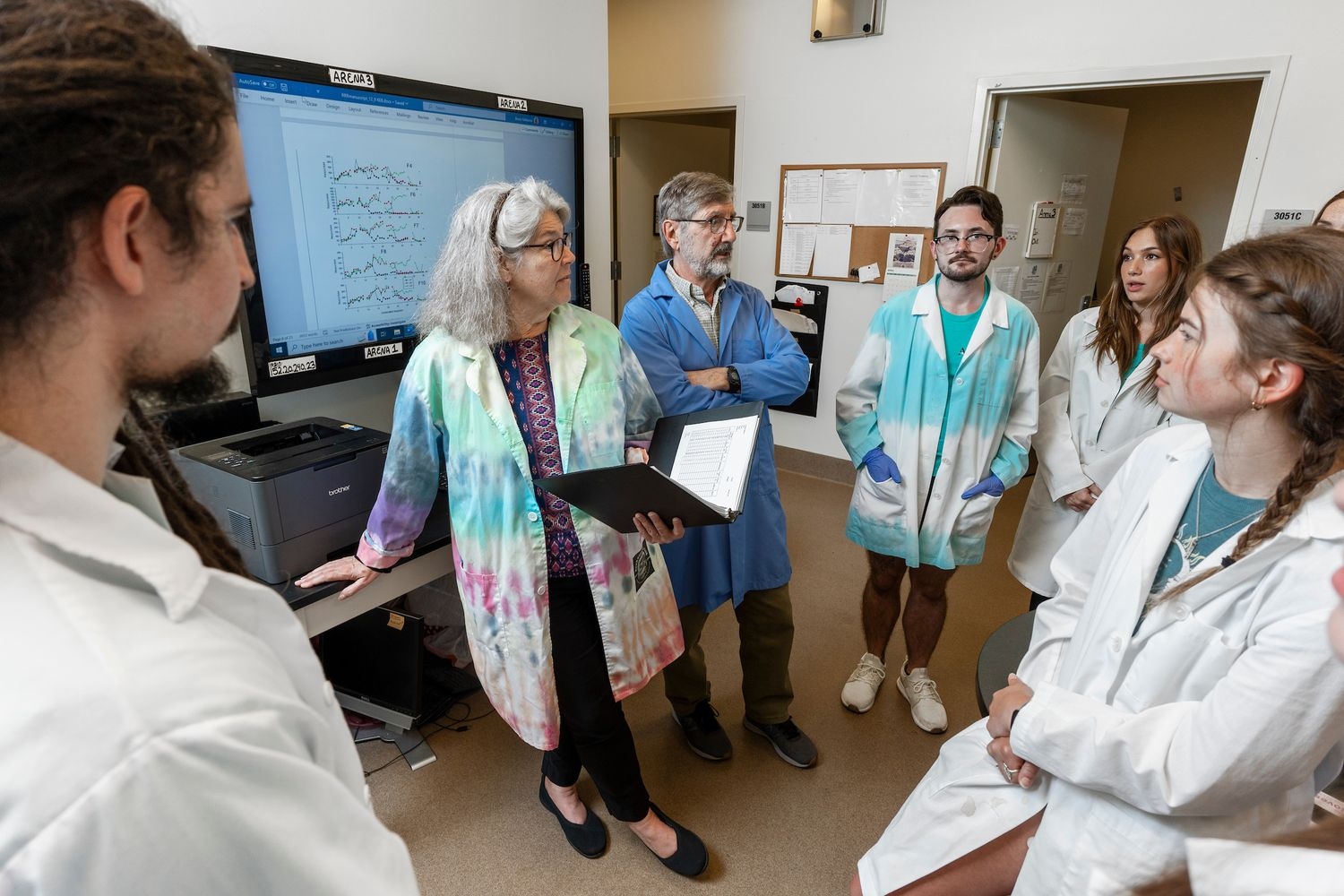Funding Will Support Study of Symbolic Processes in Animals

Photo: Michael Spencer/UNCW
UNCW has received a $452,750 grant from the National Institutes of Health to further animal behavior research and explore the possibility of symbolic processes in animals.
The research will be led by Kate Bruce and Mark Galizio, faculty in the UNCW Department of Psychology. Their project, “Transfer of Function Across Equivalence Classes: Implications for Substance Use,” will explore symbolic abilities in rats.
“One of the most obvious and critical faculties that separates humans from other animals is the use of language and symbolic associations,” said Bruce. “For a number of years, scientists have been exploring the possibility that animals may possess rudimentary symbolic processes. There is certainly evidence of symbol use in apes, dogs and even some birds. Recently in our lab, we have found evidence of basic symbolic abilities in rats.”
Over the next three years, the NIH funding will allow Bruce and Galizio to conduct a series of experiments to assess whether categories of stimuli trained in rats share properties with natural human language categories. For rats, odor stimuli are used because of their remarkable olfactory discriminations, which are even sharper than dogs. The researchers will test whether category members are functionally interchangeable with each other and whether emotional or cognitive properties, e.g., anxiety and drug cravings, attached to one category member can transfer to the other category members as they do in people.
Rodent models are critically important in neuroscience research.
"These experiments are significant because a rat model of symbolic processes may allow scientists to learn more about the neural mechanisms underlying human symbol use and language as well as the evolutionary roots of symbolic processes,” said Galizio.
Research reported in this press release is supported by the National Institute on Drug Abuse of the National Institutes of Health under award number 1R15DA058909. The content is solely the responsibility of the authors and does not necessarily represent the official views of the National Institutes of Health.
This article has the following tags: UNCW News Homepage Academics myUNCW Psychology Research & Innovation CSE - College of Science & Engineering


